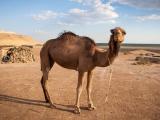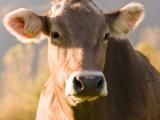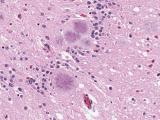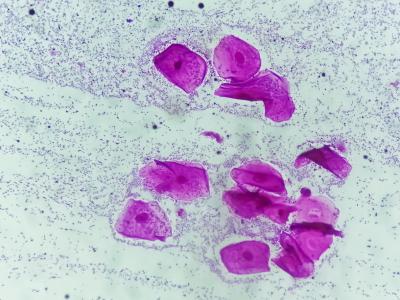Jul 13, 2004 (CIDRAP News) – The Canadian government has announced it will ban high-risk cattle parts from all animal feeds, including pet food, as a further step to prevent the spread of bovine spongiform encephalopathy (BSE).
Canada announced the decision Jul 9, the same day the US government said it had tentatively decided to take the same step but wanted to gather public comments on the move first.
The Canadian Food Inspection Agency (CFIA) did not say when the restriction would take effect. US officials, in announcing their preliminary decision, suggested it would be several months to a year or longer before the restriction would be imposed.
The Canadian action pertains to specified risk materials (SRMs)—tissues that, in infected cattle, harbor the abnormal prion proteins that cause BSE. SRMs generally include the skull, brain, spinal cord, eyes, tonsils, vertebral column, small intestine, and certain nerve bundles. Both Canada and the United States require the removal of SRMs from carcasses intended for human consumption.
Cattle contract BSE by eating protein from infected cattle. Both Canada and the United States banned the use of cattle materials in feed for cattle and other ruminant animals in 1997. However, cattle protein is still used in feed for nonruminant farm animals (pigs, chickens, horses) and in pet food.
The purpose of banning SRMs from all animal feeds is to reduce the risk of cross-contamination in feed manufacturing, whereby SRMs used in chicken or pig feed could enter cattle feed if both kinds of feed were made with the same equipment. A ban would also limit the risk from giving cattle the wrong kind of feed.
The CFIA said, "Preventing these potentially infectious materials from entering the entire feed production chain at the start diminishes the effects of potential cross-contamination of ruminant animal feeds that could occur as feed is produced and distributed. Based on risk analyses, removing SRM from animal feed will more quickly reduce the incidence of BSE in North America by preventing future disease spread."
In February, an international team of experts recommended a ban on SRMs in all animal feed as a critical step for preventing the spread of BSE. The team reviewed the US response to the case of BSE discovered in Washington state last December.
The CFIA said it would introduce a "regulatory proposal to require the removal and redirection of SRM and dead and downer cattle from all animal feed, including pet food." The agency said it was weighing "various options" for the ban in consultation with numerous stakeholders and other governments, including the United States.
The CFIA noted that an international team that reviewed Canada's response to the BSE case found in Alberta last year "strongly endorsed" the removal of SRMs from all animal feed. "Feed restrictions are universally recognized as the critical measure to contain the spread of BSE," the agency said.
A Canadian Broadcasting Corp. report on the CFIA announcement said that it fell short of critics' demands that all animal parts be removed from all animal feed.
See also:
Jul 9 CIDRAP News story, "FDA sets BSE-related rules but delays action on feed"


















